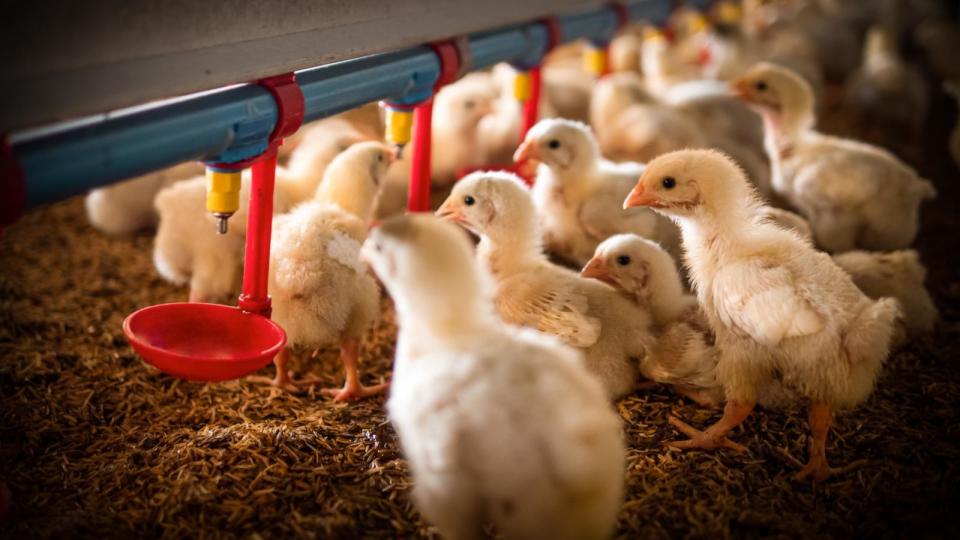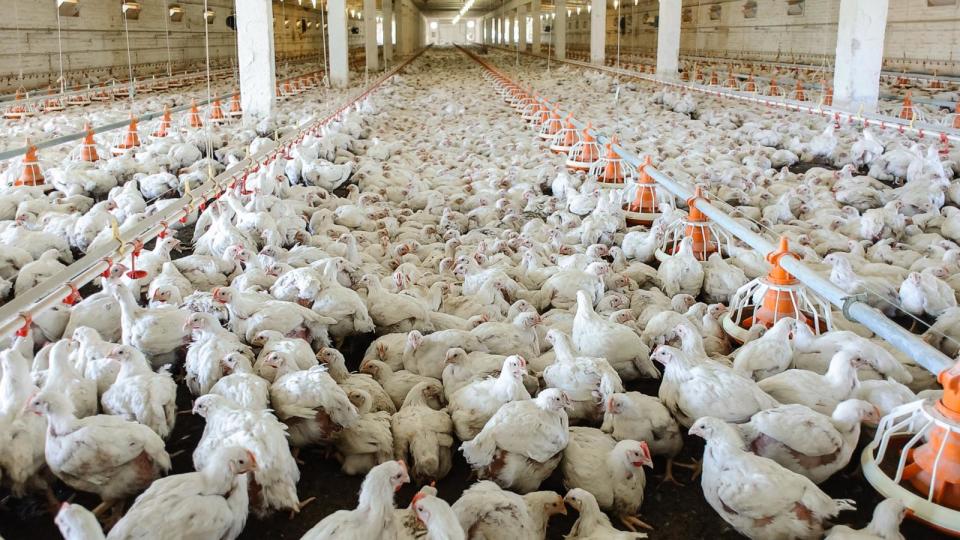Bird flu outbreak poses no risk to safety of America’s food supply, say experts
Amid an outbreak of bird flu, also known as the H5N1 virus, in poultry and cattle, there is no risk of humans getting sick from America's food supply, if meat is cooked and milk is pasteurized, according to federal agencies and veterinarians that spoke to ABC News.
"Commercial food, so, milk and meat are going to be fine. Especially with pasteurization and cooking, it kills this virus," Dr. Jeff Bender, a public health veterinarian and professor at the school of public health at the University of Minnesota, told ABC News.
"The concern, or the unknown is, what about unpasteurized milk or unpasteurized cheeses? That's why we've seen the concern from the FDA, from the USDA, from the CDC, saying we just don't know, therefore don't consume that," Bender added.
Federal public health agencies, like the Food and Drug Administration (FDA) and the Centers for Disease Control and Prevention (CDC), already warn against drinking raw milk or products made from it, due to the risk of viruses and bacteria, which may lead to infection or foodborne illnesses.
"Pasteurization is always the safest way to consume milk and the only legal way to consume it in many states. So, I'm not super-worried about the milk supply. The milk that travels across state lines has to be pasteurized because that's regulated at the federal level," Dr. Sumiko Mekaru, the vice president of research & innovation at PHC Global, a bio risk threat intelligence platform provider, told ABC News.
MORE: Avian flu hits dairy-producing cattle farms
Today, 20 states explicitly prohibit intrastate raw milk sales in some form, and 30 allow it, according to the FDA.

There is no current impact on milk supply or prices, since the spring months come with seasonally higher production, according to the U.S. Department of Agriculture (USDA). A milk recall is not necessary at this time, the agency believes.
The USDA is also confident that the meat supply is safe. Cooking meats to a safe internal temperature kills bacteria and viruses, like influenza, they note.
MORE: What you need to know about bird flu after person became infected in Texas
Recently, the largest egg producer in the U.S. had to depopulate nearly two million chickens after discovering H5N1 among one of their flocks, according to the Texas Department of Agriculture.
"If the virus is present, typically they cull all the birds, there is a deep clean, and you try to address how it might have gotten introduced. Biosecurity is a big focus for poultry operations," Mekaru said.
Cattle will likely not require the same treatment, according to the USDA. Little to no infected cattle have died and most have recovered as they isolate from other animals, the agency said.
As more U.S. livestock becomes impacted, experts continue to investigate whether the H5N1 virus is passing between mammals, or if the animals are becoming infected directly from birds.
"I do not think we have confidence that it is definitely going mammal to mammals," Mekaru said. "It's possible they all got infected from a bird source rather than it going from cow to cow."

"I don't think I've seen anything that substantiates cattle-to-cattle transmission, but that's something that needs to be looked at," Bender said. Bird migration may also be partly responsible, he added.
The CDC notes that the "spread of H5N1 bird flu viruses from mammal to mammal is thought to be rare, but possible."
While the H5N1 virus is most commonly found in birds and, more recently, in cattle, it has previously impacted other animal populations, such as harbor seals, mountain lions, racoons, polar bears, red foxes, and striped skunks, according to the USDA.
Researchers continue to investigate how each species may be impacted by the virus, and the manner in which it may spread among species.
"All of these different species have some different, biological characteristics. So, it's very possible for an influenza virus to pass between seals, but not between cats and not between pigs or not between humans. So, everybody's a little bit different," Mekaru said.
Bird flu outbreak poses no risk to safety of America’s food supply, say experts originally appeared on abcnews.go.com


